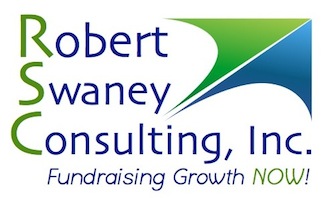A recent television commercial boasts, “More is better. We
want more!”. Arts and cultural
organizations have meditated on this mantra for years – they can always use
“more.” More money. More staff. More donors. More everything. But, can there be
too much of a good thing? In some cases, RSC says, “yes”. Take, for instance, the tenure of a board
member and the idea of term limits.
 |
| What -- No Bait Left? |
Successful non-profit boards and staffs build their
fundraising programs through “relationship-based” fundraising. Simply put, it’s
about asking people who you actually know
to support the organization. When done
correctly, it provides very effective fundraising leverage. The down side is
that each board member has a finite number of relationships – the “black book”
is only so thick. In the long run, the less your organization rotates board
members, the fewer new relationships you’ll have over time – and your
fundraising efforts will certainly suffer.
For that reason alone, your organization should exercise
term limits on its board. Loyal and active board members sometimes balk at this
idea, but RSC’s conclusion is that a board member serving 20+ years has likely
tapped his/her community connections – and the well of new names ran dry years
ago. So, exercising term limits to make room for new relationships becomes
essential.
Your fundraising isn’t the only thing to suffer. Good
governance is also at risk. Each board member comes with a limited set of views,
ideas and solutions. A mix of seasoned and fresh perspectives is a great recipe
for creative problem solving and relationship building – but quickly gets stale
when the board doesn’t change.
RSC believes successful nonprofits are aligned with their
community’s needs. One way to build that continuity is to expand the board in a
way that allows a variety of people (with a variety of community backgrounds) to
serve. Over time, allowing this broader group to own the ‘organizational
mission’ creates more stewards and caretakers throughout the community. More
ownership means more buy-in. More problem-solving. More support.
Is there a downside to enforcing term limits? Perhaps –
but there are also plenty of opportunities, too. Institutional
history is a valuable resource – so keep it! Just because someone is rotating
off of the board doesn’t mean they have to rotate out of the organization. Keep
them engaged in an advisory capacity as your organization looks to the future. They
have an emotional connection that inspires others. Channel that dedication by implementing
a succession plan that engages these long time supporters in new ways. Create
an advisory board to keep long-time members engaged. Put them on a committee or
a task force. Just create an engagement
strategy for those who want to be engaged beyond board leadership.
If your board does not have or exercise its term limits, ask
“why not?” Start the conversation in your governance/nominating committee
meetings. Research and outline the important reasons for change. Determine an
adequate board size and build a strategy to reach your organization’s goals
over the next few years. Be sure to develop and nurture a quality board volunteer
experience that also benefits your organization. The board should always lead this conversation – not the
staff.
Change can be uncomfortable and it takes time, so take the
long view. When bringing on new board members, invest in their learning curve,
even if it doesn’t feel efficient at first. Building productive momentum takes
time, but the payoff is meaningful – organizational sustainability and broader
ownership of stakeholders.
During any board transition, a thoughtful process is needed
– and RSC can help. When done correctly, your board members will be happy and
productive, even as their role changes and matures. New supporters are eager to
be engaged as volunteers, and over the years, new energy permeates and
strengthens the entire organization.
